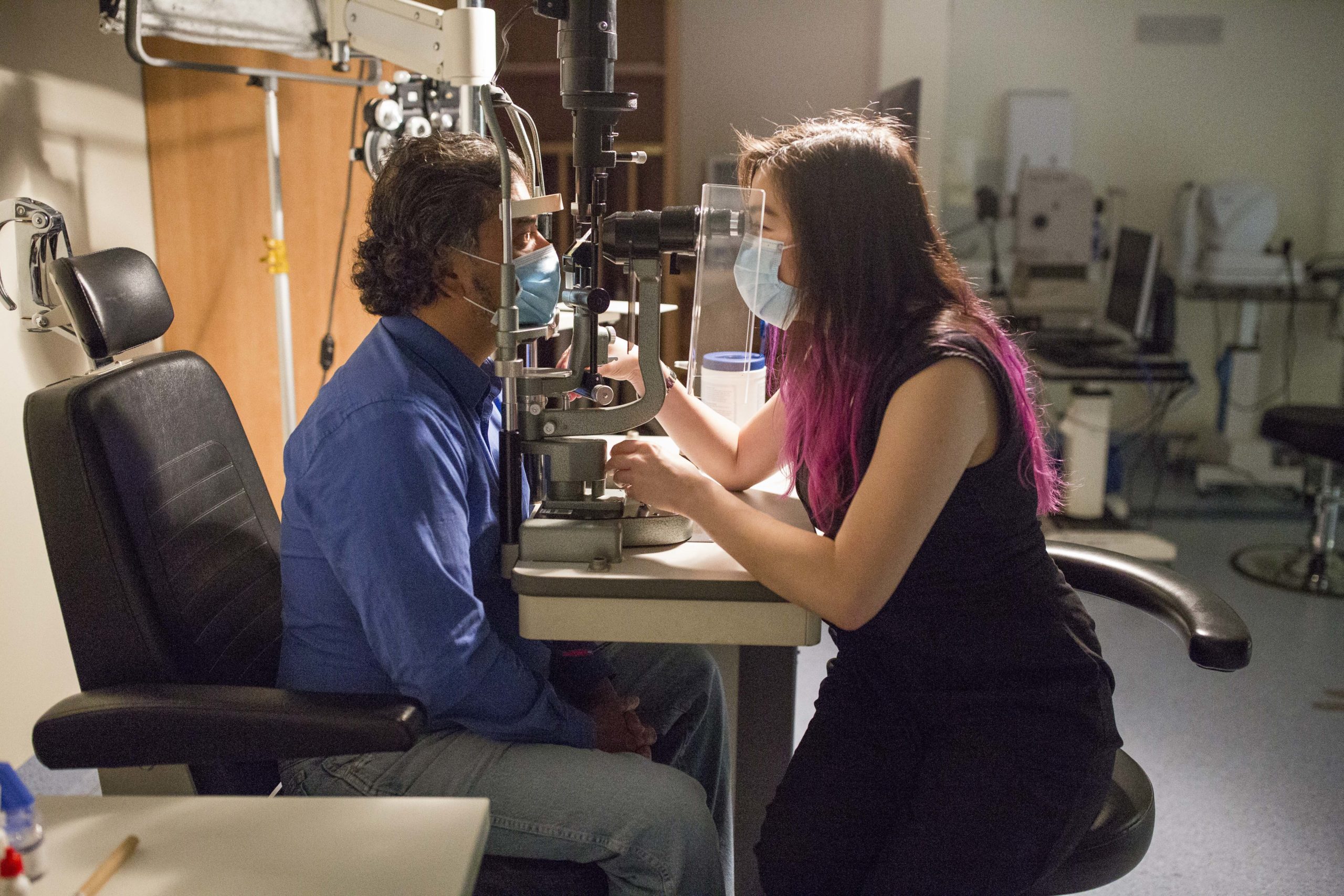This website uses cookies so that we can provide you with the best user experience possible. Cookie information is stored in your browser and performs functions such as recognising you when you return to our website and helping our team to understand which sections of the website you find most interesting and useful.
NEWS
Vitamin B3’s promise in slowing the progress of glaucoma
Promising results in our pioneering study into the role of vitamin B3 in slowing the progress of glaucoma has sparked plans for a large international trial.
CERA researchers are set to embark on a follow-up study into the role of vitamin B3 in preventing nerve cell damage in glaucoma, following the release of promising research findings in 2020.
Promising findings
The results of our world-first study, led by former Managing Director Professor Jonathan Crowston and Research Fellow Dr Flora Hui, were published in Clinical & Experimental Ophthalmology in July 2020.
They showed improvement in the visual function of glaucoma patients who received a daily high dose of 3 grams of nicotinamide for 12 weeks in addition to their regular treatment to reduce eye pressure.
Following strong interest in the results, Dr Hui was named as the recipient of Glaucoma Australia’s Quinlivan Research Grant.
The $200 000 funding will be instrumental in supporting the next phase of Dr Hui’s research along with CERA Managing Director Professor Keith Martin and international collaborators including Professor Crowston (now at Duke NUS-Medical School Singapore), Professor Robert Casson from the University of Adelaide and Dr Peter Williams from the Karolinska Institutet, Sweden.
Protecting nerve cells
Glaucoma is the world’s leading cause of irreversible blindness, affecting more than 60 million people worldwide.
The disease, which leads to vision loss when cells in the optic nerve and retina are lost, is usually treated with eye drops or surgery to reduce eye pressure. However, there are currently no treatments to protect cells from further damage or to improve cell function.
“For the first time, we were able to show that daily high doses of vitamin B3 can lead to early improvements in patients who are also receiving traditional treatments to lower eye pressure,” says Dr Hui.
“Our follow-up study will help us determine if vitamin B3 should be taken on an ongoing basis by glaucoma patients.”

About the trial
CERA’s initial trial followed 57 patients, all of whom received both placebo and vitamin B3 over the course of the study.
The visual function of patients was tested using electroretinography, a diagnostic test which measures electrical activity in the cells of the retina, and visual field testing to determine any changes that occurred.
The trial found that in some people, high-dose nicotinamide improved how nerve cells were functioning in the eye. The follow-up trial will assess whether these improvements can help reduce disease progression over a longer period.
Earlier pre-clinical research in the US showed that vitamin B3 could prevent optic nerve degeneration – but this was the first time similar results have been witnessed in a human trial.
Dr Hui says the findings provide hope of a treatment that could protect nerve cells and damaged cells to function better.
“Like adding oil to a car engine to allow it to run smoothly, vitamin B3 could be used to protect cells from damage and help those that have been affected by glaucoma work better,” she says.
Research supporters
Dr Hui and Professor Crowston’s initial research was supported by the Jean Miller Foundation, Connie and Craig Kimberley Foundation, the Ophthalmic Research Institute of Australia, Jack Brockhoff Foundation, Marian and EH Flack Trust, Fund and Board of Research Faculty (Karolinska Institutet).
Dr Hui is grateful to receive Glaucoma Australia’s Quinlivan Research Grant which will help support the next phase of her research.
*This story first appeared in the CERA Annual Review for 2020.

